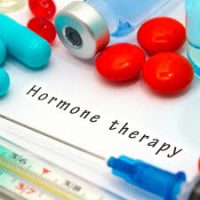- Home
- Editorial
- News
- Practice Guidelines
- Anesthesiology Guidelines
- Cancer Guidelines
- Cardiac Sciences Guidelines
- Critical Care Guidelines
- Dentistry Guidelines
- Dermatology Guidelines
- Diabetes and Endo Guidelines
- Diagnostics Guidelines
- ENT Guidelines
- Featured Practice Guidelines
- Gastroenterology Guidelines
- Geriatrics Guidelines
- Medicine Guidelines
- Nephrology Guidelines
- Neurosciences Guidelines
- Obs and Gynae Guidelines
- Ophthalmology Guidelines
- Orthopaedics Guidelines
- Paediatrics Guidelines
- Psychiatry Guidelines
- Pulmonology Guidelines
- Radiology Guidelines
- Surgery Guidelines
- Urology Guidelines
Hormone therapy does not protect against muscle weakness in aging women: JAMA Study

Canada: Hormone therapy (HT) is neither significantly beneficial nor detrimental for muscle mass in postmenopausal women, finds a systematic review and meta-analysis.
Although muscle retention in ageing women is of crucial importance, findings, published in the JAMA journal, suggest that interventions other than HT should be explored.
"The small potential benefit for maintaining muscle mass in the general population of postmenopausal women likely does not outweigh the potential risks of prolonged HT," the researchers write.
Hormone therapy has been suggested to provide protection against age-related muscle weakness in women. This is on the basis of the hypothesis that declining estrogen levels during the menopause transition accelerate the assault on lean body mass. However, the potential for health risks associated with HT warrants a better understanding of the association between HT and health outcomes such as lean body mass (LBM).
Ayesha A. Javed, McMaster Institute for Research on Aging, McMaster University, Hamilton, Ontario, Canada, and colleagues conducted a systemic review and meta-analysis of randomized controlled trials to determine whether HT (estrogen-only or a combination of estrogen and progesterone) was associated with reduced LBM loss compared with not receiving HT among postmenopausal women aged 50 years and older.
The analysis included 12 studies comprising 4474 participants (mean age 59 years). The median duration of follow-up was 2 years. Treatment varied by duration (ranging from 9 to 25 days per month to more than 8 years), formulation (15 of the 22 treatment groups used estrogen-progesterone combination therapy and 7 used estrogen-only), and dosage.
The primary outcome of interest was a change in LBM. Subgroup analyses looked at between-group differences on the basis of hormone therapy type and dosage, duration of follow-up, time since menopause, study quality, and type of LBM measurement.
Also Read: Menopausal hormone therapy linked to increased breast cancer risk finds Lancet study
Key findings include:
- Seven treatment arms showed a loss of LBM, and 14 were protective.
- Overall, HT users lost 0.06 kg less LBM compared with control participants, but the difference was not statistically significant.
- The results were unchanged when stratified based on treatment type and dosage, duration of follow-up, time since menopause, study quality, and type of LBM measurement, with HT users losing between 0.06 kg more to 0.20 kg less LBM compared with control participants for all strata.
- The quality of evidence-based on GRADE was low.
- Findings from subgroup analyses by follow-up duration, time since menopause, study quality, estrogen dosage, and LBM measurement type were not statistically significant.
Also Read: Menopausal hormone therapy lowers risk of knee osteoarthritis
The findings are highly variable but overall indicate no statistically significant difference in lean body mass (LBM) changes between treatment and control groups.
"Despite the limitations of the literature, this study highlights the consistently null results in studies investigating HT and retention of muscle mass. The importance of muscle retention in ageing women is crucial, but these findings suggest that interventions other than HT should be explored," concluded the authors.
To read the complete study follow the link: doi:10.1001/jamanetworkopen.2019.10154

Disclaimer: This site is primarily intended for healthcare professionals. Any content/information on this website does not replace the advice of medical and/or health professionals and should not be construed as medical/diagnostic advice/endorsement or prescription. Use of this site is subject to our terms of use, privacy policy, advertisement policy. © 2020 Minerva Medical Treatment Pvt Ltd